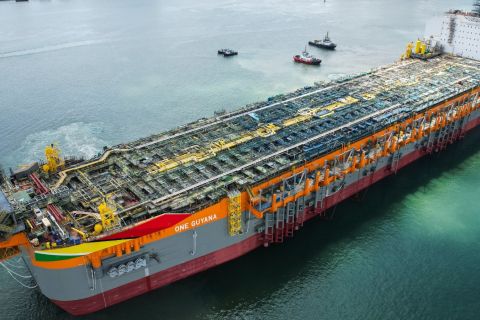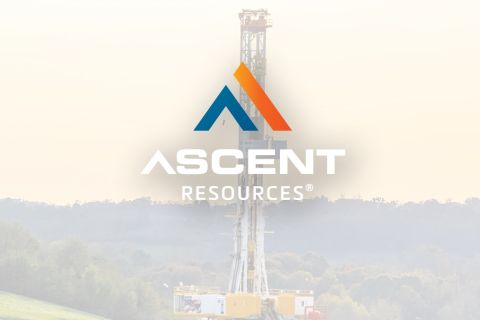Supply chain management is seen as a backroom function—something every company needs but is often viewed as a time-consuming paper exercise that must be gone through to procure the things needed to run a business. It’s not as high-profile as human resources (HR) or finance and not generally seen as a strategic corporate function or discipline.
But this is shifting at U.K. oil producer EnQuest, where a change in culture and attitude toward supply chain management is delivering better value across the business.
As a relatively young independent operator, EnQuest is punching above its weight in terms of how it manages its supply chain. It recently secured a gold award from industry body Oil & Gas UK for its approach to supply chain management.
The company is taking a progressive approach toward moving this perceived backroom office function to where it has a material impact on the business and, indeed, sees it as the backbone or foundation of first-class operational performance.
Industry changing its approach
The industry, not just EnQuest, is changing its approach to supply chain management. Not that long ago, oil and gas was not as focused on supply chain management as, for instance, the IT and retail sectors, where tight profit margins mean that the difference between poor and good supply chain management is crucial.
But with rising demand and tight supply, supply chain management is becoming increasingly important to the E&P sector. Procurement and logistics must work more closely together to better design and deliver contracts to create efficiencies. This emerging recognition of the criticality of supply chain management is slowly leading to a repositioning of the discipline within the business.
EnQuest has established a team that is working to integrate across the whole business and not simply sitting in a supply chain silo. The aim is to win the confidence of its engineers across the business.
Through informal and formal training, the supply chain team gains an understanding of the needs of the business and what the engineers require from their suppliers. This enables them to better structure contracts, making sure they link with other disciplines such as logistics and can leverage efficiencies and EnQuest’s buying power.
Commercial and technical
The company teams its procurement experts with its engineering experts—the end-users of the service or product to be procured—and gives its supply chain people knowledge of subjects such as FEED and drilling. By combining the commercial with the technical imperatives, EnQuest is moving from transactional mode to a more strategic operational solution with built-in efficiencies that are embedded within the business.
The company’s approach to supply chain management has delivered significant value to the business and is now recognized as an integral part of EnQuest’s growth strategy.
And value is about much more than cost savings. As with any other aspect of the business, it is equally about developing mutually beneficial relationships with the company’s suppliers. An internal review of EnQuest’s suppliers revealed that it is succeeding in building strong partnerships based on trust and respect. This also was evidenced in an external perceptions study where EnQuest’s supply chain team scored highly on its performance.
Much of what the company advocates is not new; indeed, many of its initiatives have been replicated from other sectors but are not commonly used in oil and gas.
Vendor utilization analysis
A simple vendor utilization analysis allowed the company to capture utilization data about its suppliers. The company quickly established who its vendors were and how it was using them and then was able to implement better strategies with its priority suppliers as well as rationalizing the supply base.
The Kraljic matrix is a model that helps purchasers maximize supply security and reduce costs by making the most of their purchasing power. In doing so, procurement moves from being a transactional activity to a strategic activity.
By classifying all of the commodities, components, products and services that a company buys according to the supply risk and potential profit impact of each, it can develop a purchasing strategy that fully evaluates risk and maximizes profits.
Purchasing model
The Kraljic Portfolio Purchasing Model helps purchasers understand where their products are classified in terms of supply risk and profit contribution and also know whether the balance of power lies with them or with their suppliers.
EnQuest’s purchasing strategy, informed by following the Kraljic model, has enabled the company to make the most of its buying power, securing good prices and long-term contracts from a number of suppliers, reducing the risk involved in highly important items and introducing the right tools and technology to better understand its supply chain and make its purchasing more efficient.
One such tool is the use of purchasing cards—or P-cards—to streamline procurement. Again, P-cards are not new, but they are rarely used in oil and gas. EnQuest gives its buyers P-cards, allowing them to purchase quickly and routinely for agreed items to a stated value limit. The cards cut down dramatically on purchase orders issued and invoices to be processed, satisfying both its finance department and its regular suppliers.
Through these initiatives and other rationalized cost models, EnQuest is building an environment that keeps costs under control.
Rising costs
Rising costs continue to be one of the biggest challenges facing the industry at the moment. The current supply and demand dynamics continue to put upward pressure on costs.
At some point this is going to reach boiling point, and operators will be looking at radical ways to slash costs. By adopting a pan-industry approach, the industry would be able to take a step back and start asking itself what people and services are really worth rather than simply accepting the price increases until they reach crisis point.
The industry would do well to learn from other sectors. The oil and gas industry needs to be more open to what works elsewhere and to people who have experience outside of the sector. As with all other disciplines in this industry, there is a shortage of procurement and supply chain specialists with oil and gas experience, but that should not be a major factor in recruitment.
Everyone comes from different backgrounds and industries, and we have gained knowledge in oil and gas. If it is acknowledged that supply chain management is a discipline like HR, finance or engineering, then companies should be seeking those with the best qualifications and competence in this area. Learning about oil and gas can be the next step.
Recommended Reading
Rhino Taps Halliburton for Namibia Well Work
2024-04-24 - Halliburton’s deepwater integrated multi-well construction contract for a block in the Orange Basin starts later this year.
Halliburton’s Low-key M&A Strategy Remains Unchanged
2024-04-23 - Halliburton CEO Jeff Miller says expected organic growth generates more shareholder value than following consolidation trends, such as chief rival SLB’s plans to buy ChampionX.
Deepwater Roundup 2024: Americas
2024-04-23 - The final part of Hart Energy E&P’s Deepwater Roundup focuses on projects coming online in the Americas from 2023 until the end of the decade.
Ohio Utica’s Ascent Resources Credit Rep Rises on Production, Cash Flow
2024-04-23 - Ascent Resources received a positive outlook from Fitch Ratings as the company has grown into Ohio’s No. 1 gas and No. 2 Utica oil producer, according to state data.
E&P Highlights: April 22, 2024
2024-04-22 - Here’s a roundup of the latest E&P headlines, including a standardization MoU and new contract awards.





